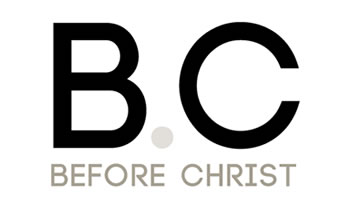Difference between AD and BC
Key Difference: AD and BC are used to label or number years. The AD stands for Anno Domini. It refers to all of the time that has passed after the Birth of Christ, whereas BC stands for Before Christ; it refers to all of the time that passed before the birth of Christ.
include("ad4th.php"); ?>
 Most of us have come across the terms AD and BC, especially when reading about dates in history. However, it can be confusing to understand what these acronyms are referring to. History is confusing as is, these shouldn’t add to it.
Most of us have come across the terms AD and BC, especially when reading about dates in history. However, it can be confusing to understand what these acronyms are referring to. History is confusing as is, these shouldn’t add to it.
Also see: Archaeology Vs. History.
Basically, AD and BC are ways to denote time, specifically when a year took place. Their purpose is to divide all of the time into two segments. The AD stands for Anno Domini, which translates to “year of our Lord.” It refers to all of the time that has passed after the Birth of Christ, whereas BC stands for Before Christ; it refers to all of the time that passed before the birth of Christ.
include("ad3rd.php"); ?>
The terms, AD and BC are used to label or number years in the Julian and Gregorian calendars. However, today most of the world uses the Gregorian calendar; hence the terms AD and BC have become common parlance. The other calendars, which are commonly lunar based, are not only used in religious or cultural contexts to figure out the dates of religious and cultural festivals.
In this context, there is no Year Zero (0). According to this time, Jesus Christ, also known as Jesus of Nazareth, was both in 1 AD. Everything after that occurs in years that are labeled as AD: 1 AD, 2 AD, 10 AD, 100 AD, 2000 AD, etc. We are currently in the 21st century AD, which means that we are more than 2000 years after the birth of Christ.
BC, on the other hand, refers to all of the time that occurred before the birth of Christ. For example, the dinosaurs lived about 60 million years ago, so in 60 million BC. The Roman was founded in 27 BC. One thing that should be noted about BC is the fact that it measures time in reversing the order, such as 2000 BC occurred long before 27 BC, whereas 27 AD occurred before 2000 AD, which is very recent.

Think of time as a line. Divide that line in the middle; this is where AD starts. Hence, everything onwards of that point would be AD, i.e. 1 AD, 2 AD, 3, AD, etc. Now from the same point in the middle, draw an arrow backward towards the left of the page. This is all BC, and it is labeled backward starting at 1 BC, which is closest to the point in the middle, then 2 BC, 3 BC, etc. moving further away from the point.
Also see: Legend Vs. Myth
 However, today CE and BCE are more widely accepted than AD and BC. CE stands for Common Era, which translates from the Latin Vulgaris Aerae. It refers to the current time era as belonging to the common people, i.e. the Common Era. BCE stands for Before Common Era. These terms started to gain popularity over the course of the 20th century, as people did not want history to be defined by such clearly Christian terms. This was especially true of people who follow other religions or who did not associate themselves with any religion. Hence, CE and BCE became the official terminology for years, as they are common and free on religious implication.
However, today CE and BCE are more widely accepted than AD and BC. CE stands for Common Era, which translates from the Latin Vulgaris Aerae. It refers to the current time era as belonging to the common people, i.e. the Common Era. BCE stands for Before Common Era. These terms started to gain popularity over the course of the 20th century, as people did not want history to be defined by such clearly Christian terms. This was especially true of people who follow other religions or who did not associate themselves with any religion. Hence, CE and BCE became the official terminology for years, as they are common and free on religious implication.
Also see: Fascism Vs. Imperialism
Comparison between AD and BC:
|
|
AD |
BC |
|
Stands for |
Anno Domini |
Before Christ |
|
Also known as |
Common Era (CE) |
Before Common Era (BCE) |
|
Denotes |
Years or the passage of Time |
|
|
Status |
Unofficial global standard |
|
|
Usage |
Devised in 525 AD, widely used after 800 AD |
|
|
Calendars |
In the Julian and Gregorian calendars. |
|
Reference: Wikipedia, Quatr.us (BC and AD), Diffen, Today I Found Out Image Courtesy: behance.net, quatr.us, englishhistoryauthors.blogspot.in









Comments
Vidyasagar
Sat, 01/20/2018 - 08:19
Add new comment